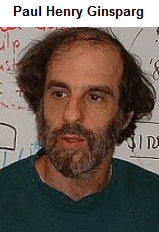|
News & Views item - August 2012 |
![]() arXiv to Adopt New Governance and Business Model. (August 31, 2012)
arXiv to Adopt New Governance and Business Model. (August 31, 2012)
 The
Cornell University Library has announced that the preprint server
arXiv
-- it covers mainly the disciplines of physics, computer science, mathematics
and statistics but in recent times has increasingly attracted papers from the
life sciences -- is to receive from the Simons Foundation up to US$350,000 per
annum through 2017 to support "the free repository that has revolutionized the
way scientists share information".
The
Cornell University Library has announced that the preprint server
arXiv
-- it covers mainly the disciplines of physics, computer science, mathematics
and statistics but in recent times has increasingly attracted papers from the
life sciences -- is to receive from the Simons Foundation up to US$350,000 per
annum through 2017 to support "the free repository that has revolutionized the
way scientists share information".
US$50,000 per annum is an unconditional grant, with the remainder subject to matched funds provided by arXiv’s other donors.
Nature reports that the Simons Foundation — which was founded in 1994 by James Simons, a mathematician and founder of the hedge fund Renaissance Technologies, and his wife Marilyn — gave $60,000 to the Cornell University library in 2011 to help arXiv put in place a self-sustaining funding model together with a new governance structure.
Paul Ginsparg set up arXiv in 1991 at the Los Alamos National Laboratory but moved to Cornell University in 2001 leaving LANL under less than amicable circumstances. The university invited him to continue and extend arXiv using it as a model for research into digital libraries.
As Ginsparg describes it, the last straw was a recent salary review at LANL
which described him as, "a strictly average performer by overall lab standards;
with no particular computer skills contributing to lab programs; easily
replaced, and moreover overpaid, according to an external market survey".
The Chair of the Department of Physics at Cornell, Peter Lepage's sardonic comment was, "Evidently their form didn't have a box for: 'completely transformed the nature and reach of scientific information in physics and other fields'."
This past September Professor Ginsparg relinquished being directly involved in running arXiv, but remains on its advisory board.
In a statement released by the university:
To date, more than 120 member institutions in over a dozen countries have pledged their support, totaling $285,000. Among the 100 institutions that use arXiv most heavily, nearly three-quarters committed to five-year pledges. "The sustainability planning process focused on how to diversify revenue models — but, equally importantly, we wanted to make sure arXiv could establish a set of governance principles. It's setting an example of a transparent and reliable community-supported service," said Oya Rieger, arXiv Program Director and Associate University Librarian for Digital Scholarship Services.
As an open-access service, it allows scientists to share “preprint” research before publication and boasts hundreds of thousands of contributors. In 2011 alone, arXiv saw close to 50 million downloads from all over the world and received more than 76,000 new submissions.
It remains to be seen if arXiv and future preprint servers will have an increasing importance on the rapid distribution of research findings and what will be the effect on journal open access, green or gold.